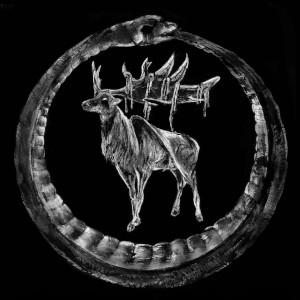


I discovered Skagos all the way back in the spring of 2010. Around that time, I had taken a great interest in atmospheric black metal after discovering Njiqahdda. This led me to Petrychor, then to Panopticon, and then to this band. Atmospheric black metal as a genre had existed for quite a while, but it wasn’t until 2009 that it truly became popular. Skagos were in the right place at the right time, because they released their full-length debut, Ast, that very same year. When I listened to it, I was blown away, and I can confidently say that it still holds up over a decade later.
Reviewing this album is a real challenge because of how dense it is. To put it as simply as I can, they combine atmospheric black metal with folk music and post-rock, but it’s so much more nuanced than that. The band consists of just two members: Ray Hawes and Isaac Symonds. Ray handles bass and harsh vocals while Isaac handles guitars, drums, and clean vocals. The production is a bit unorthodox. It’s somewhat cleaner than typical black metal. The instruments can be heard clearly and the guitars still have some cloudiness to them, but the overall tone is warmer than what is expected from the genre. Some might be turned off by this, but I think it fits the nature theme of the album.
The drums have a bit of a raw sound. This is most obvious with the snare, which sounds like a thud. I actually like it because it makes the album feel more authentic. The overall performance is excellent. The blast beats are stripped-down and almost Darkthrone-like. The slower patterns are hard-hitting and precise. Their post-rock influence shows up in the form of slightly more complex, almost jazzy rhythms, such as those on the halfway point of the second track. On occasion, they throw in some energetic galloping rhythms that feature subtle double bass. Great fills punctuate all of these different patterns. The bass mostly stays in the background, but when it is thrust to the foreground, most notably on the last two songs, it puts on an excellent elaborate performance.
The main vocal style is a harsh, raspy scream. The performance is strong throughout the whole album, always managing to be fierce and forceful, but what interested me more were the clean vocals. They appear on just two songs: “Blossoms Will Sprout From the Carcass” and “Caliginosity”. That was all the time they needed to leave a lasting impact. When I first heard them all those years ago, I was amazed. I was entranced by the repeated verse “Rain will fall and fall” on the third track, and their powerful display on the fifth track was uplifting. Very few black metal bands since then have been able to come up with anything as magical as this.
The guitars are brilliant. The tremolo riffs are aggressive, but they also feel grand and epic, as though you were standing in the presence of giant ancient trees. This quality is also felt in the many mid-paced chord progressions. Between these are moments when things get quiet and the band plays clean guitars. These sections are finely crafted and help to build anticipation for the more aggressive parts. The guitars are heavily layered, and when combined with the warm tone mentioned earlier, it creates an atmosphere that reflects the might and majesty of nature. Further reinforcing this atmosphere are the many high-pitched riffs that are beautifully melodic. The most powerful of these can be found on the second and fifth tracks.
Ast is one of the greatest atmospheric black metal albums ever made. Every single element of it is incredible, from the atmosphere to the instrumental work to the vocals. It helped cement Cascadia’s reputation as a wellspring of black metal creativity. The band would go on to release another full-length called Anarchic in 2013. I didn’t like it. The instrumental work was great, but the Bjork-like vocals ruined it for me. No one knows what they’re up to now. It’s starting to turn into a Necrophagist situation where people are holding out hope for new material that never comes. Even if they decide to vanish without a trace into the forests of British Columbia, the impact they left on atmospheric black metal will be unforgettable.